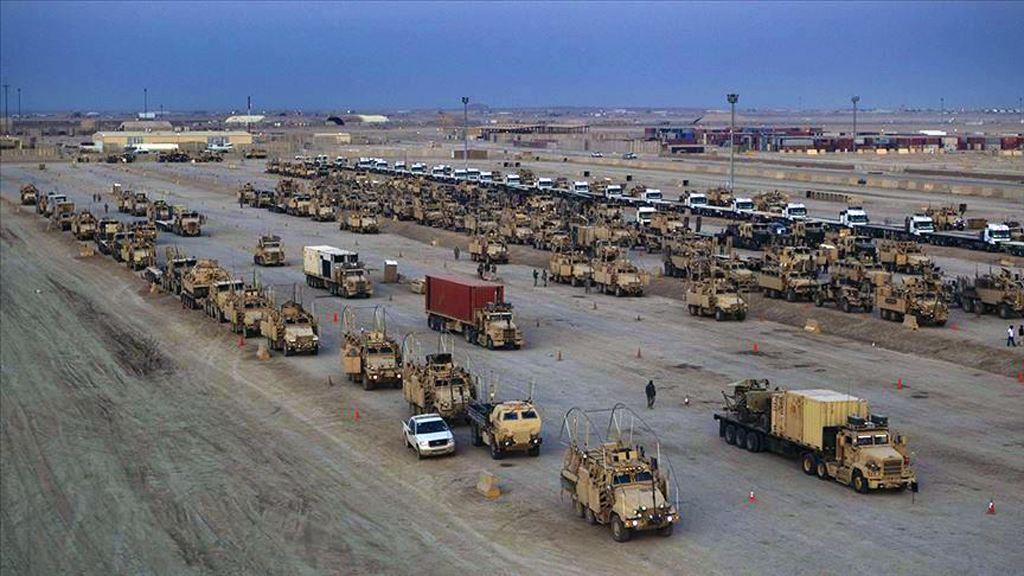
Trump wants to renegotiate with Iran, not engage in a war
The targeted killing of Qassem Soleimani, the commander of Iran's Quds Force, an elite unit of the Islamic Revolutionary Guard Corps (IRGC), and the deputy chief of Hashd al-Shaabi forces in Iraq, Abu Mahdi al-Muhandisi, is a game-changer for Middle Eastern politics. Immediately after the attack that killed Soleimani, Iranian leadership threatened the U.S. and its allies in the region. Iran fired missiles at two American bases in Iraq in retaliation to the assassination of Soleimani. No casualties were declared in Iran's retaliatory attacks. Leaders of both countries escalated the tension, but they were careful not to let the crisis get out of control.
Share
The targeted killing of Qassem Soleimani, the commander of Iran's Quds Force, an elite unit of the Islamic Revolutionary Guard Corps (IRGC), and the deputy chief of Hashd al-Shaabi forces in Iraq, Abu Mahdi al-Muhandisi, is a game-changer for Middle Eastern politics. Immediately after the attack that killed Soleimani, Iranian leadership threatened the U.S. and its allies in the region. Iran fired missiles at two American bases in Iraq in retaliation to the assassination of Soleimani. No casualties were declared in Iran's retaliatory attacks. Leaders of both countries escalated the tension, but they were careful not to let the crisis get out of control.
Some analysts expected that the assassination of Soleimani would stimulate a new cycle of conflict between the U.S. and Iran, which may lead to a broader war affecting the entire Middle East region. What the Donald Trump administration wants to achieve with this new cycle of escalation, which started with Washington issuing new sanctions against Iran and peaked with Soleimani's assassination, is not to start a war with Iran but to renegotiate the Joint Comprehensive Plan of Action (JCPOA).
U.S. President Donald Trump thinks the Iran nuclear deal is the "worst deal ever" and that the deal did not help stabilize the region for Washington and its allies. Israel and Saudi Arabia are concerned about both Iran's activism and Washington's plans to withdraw from the region. Trump wants to renegotiate with Iran on his terms so that U.S. troops can be evacuated from the region without leaving behind a significant power vacuum. A new and more advantageous deal with Iran may also satisfy the expectations of Washington's allies in the region.
The Barack Obama administration wanted to limit Iran's nuclear efforts with the JCPOA, but the deal did not send any signal for Iran to stop destabilizing the region with its proxies. Iran's regional ambitions and regional expansion constitutes the most significant obstacle to Washington's efforts to stabilize the region for its allies. For Trump, this is mainly due to the Iran nuclear agreement, which is portrayed as a failure of the Obama administration. Trump wants a better deal on his terms. As he has mentioned numerous times, Washington's ambition with the new sanctions against Iran is not to change the regime in Tehran but to abandon its regional ambitions and regional expansionism.
Trump's track record as president has shown he is not in favor of multilateral talks or complicated negotiations with the participation of other actors. He believes that the inclusion of other permanent members of the United Nations Security Council and Germany have distracted Washington from achieving its goals in nuclear negotiations with Iran.
Besides, all the other actors have different visions on Iran, and their views do not help deter the Iranian threat. Europeans are eager to develop their economic and diplomatic ties with Iran.
China and Russia had recently held naval military drills at the Gulf of Oman. The recent naval exercise of the three powers frightened the American allies in the Gulf. Saudi Arabia has recently initiated the launching of the "Council of Arab and African Coastal States of the Red Sea and the Gulf of Aden" to counter Iran's influence in the Gulf region.
Trump is especially concerned about the discord of the NATO allies on the Iran issue. The assassination of Qassem Soleimani was not only a strong message to Iran, but it was, at the same time, a message to the U.S.' allies as well as to other international actors on the issue. Trump demonstrated his appetite for taking a risk in dealing with Iran.
The regime suppressed strengthened sanctions against Tehran after Trump's decision to devastate the Iranian economy, leading to popular protests and a cycle of demonstrations of excessive use of force. Trump was against the idea of changing the stalemate with Iran with the use of force, but the recent attacks against the American Embassy in Iraq changed this reluctant attitude. For a long time, the hawks in Washington tried to convince Trump to use military force against Iran, and Trump was against the idea.
Trump even dismissed John Bolton as his national security adviser due to his hawkish views against Iran, which may have triggered an unnecessary war. The decision-makers in Tehran misjudged Trump's signals about his unwillingness to engage in a military confrontation with Iran. Trump was against joining the conflict, not necessarily against the use of military power for some diplomatic gains. For Trump, ordering the killing of Soleimani was just a step to change the status quo with Iran in his favor.
If Trump had aimed to start a war with Iran, he likely would have targeted Iranian soil or Iran's nuclear facilities. As the dust of Soleimani settles, Trump's representatives will come up with a new negotiation framework for Tehran. Iran's response to the new negotiations may be the real game-changer for the region.
[Daily Sabah, 10 January 2020]
Tags »
Related Articles






